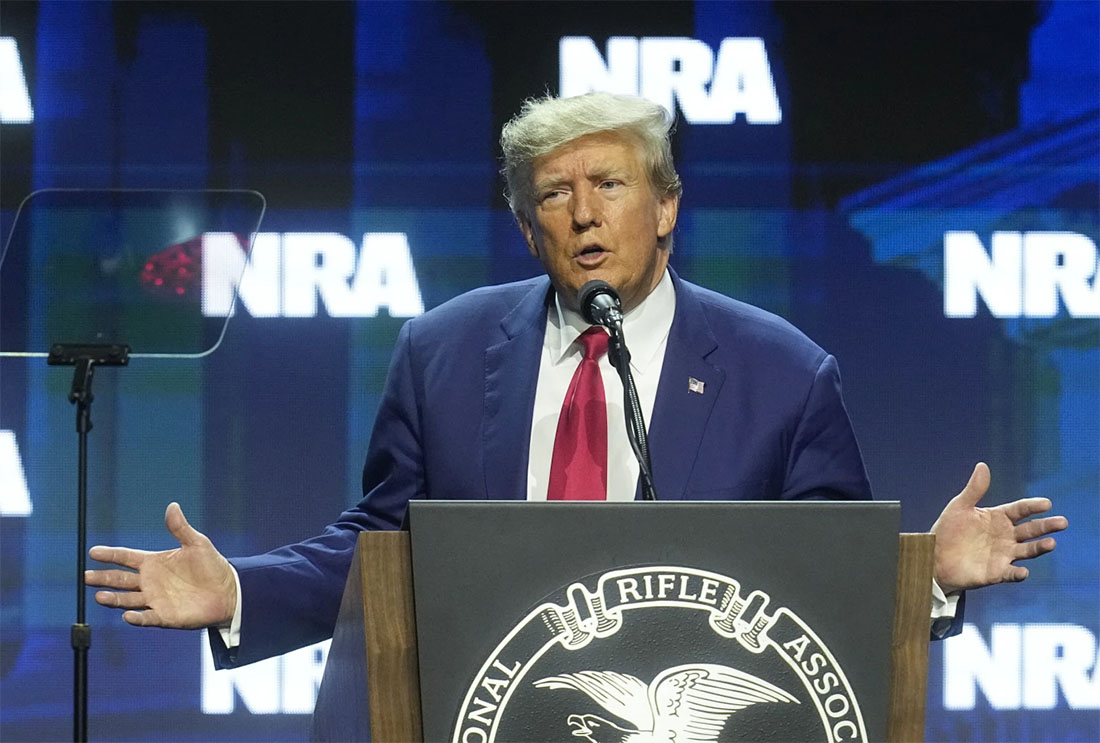Photo Credit:Getty Images
In the ongoing legal saga surrounding former President Donald Trump and the classified documents found at his Mar-a-Lago estate, federal prosecutors have taken a significant step by requesting that the presiding judge impose restrictions on Trump's public commentary about the case. This move comes amid growing concerns that Trump's inflammatory remarks could undermine the integrity of the judicial process, incite public distrust in federal institutions, and potentially influence the jury pool.
The Context of the Case
The investigation into Trump's handling of classified documents post-presidency has been a focal point of media and public attention. The FBI's search of Trump's Mar-a-Lago residence in August 2022 led to the discovery of numerous classified documents that should have been turned over to the National Archives and Records Administration. Trump has repeatedly criticized the FBI, describing their actions as a politically motivated "witch hunt" and questioning their credibility.
Prosecutors' Concerns
Federal prosecutors argue that Trump's public statements about the FBI and the case have been misleading and inflammatory. They assert that his rhetoric poses a significant risk to the judicial process, highlighting the potential for prejudice among potential jurors and increased security risks for those involved in the investigation. According to the prosecutors, Trump's comments could also provoke his supporters, possibly leading to actions that could disrupt court proceedings or intimidate witnesses.
The Legal Basis for the Request
The prosecutors are invoking the court's authority to maintain order and impartiality in judicial proceedings. They are requesting a gag order, which would restrict Trump from making any public statements that could be seen as inflammatory or prejudicial. Such orders are not uncommon in high-profile cases where there is a substantial risk that public statements could affect the fairness of the trial.
Impact on Free Speech
While some may view the prosecutors' request as an infringement on Trump's First Amendment rights, legal experts note that the right to free speech is not absolute, especially when it comes into conflict with the right to a fair trial. Courts have the authority to impose reasonable restrictions on speech to protect the integrity of the judicial process. In this case, prosecutors argue that the potential harm caused by Trump's statements outweighs his right to unrestricted public commentary.
Precedents and Implications
There are precedents where courts have issued gag orders in high-profile cases to ensure that pretrial publicity does not compromise the fairness of the proceedings. If the judge grants the prosecutors' request, it would mark a significant development in the case, potentially curbing Trump's ability to publicly criticize the investigation and the FBI. This could set a precedent for how courts handle public commentary by defendants in politically sensitive cases.
As the legal battle over the classified documents continues, the request to bar Trump from making inflammatory comments about the FBI underscores the tension between free speech and the need to preserve the integrity of the judicial process. The judge's decision on this matter will not only impact the conduct of the case but also reflect broader principles about the limits of public commentary in the context of legal proceedings. As the nation watches, the balance between safeguarding the judicial process and protecting free speech rights remains a pivotal concern.


